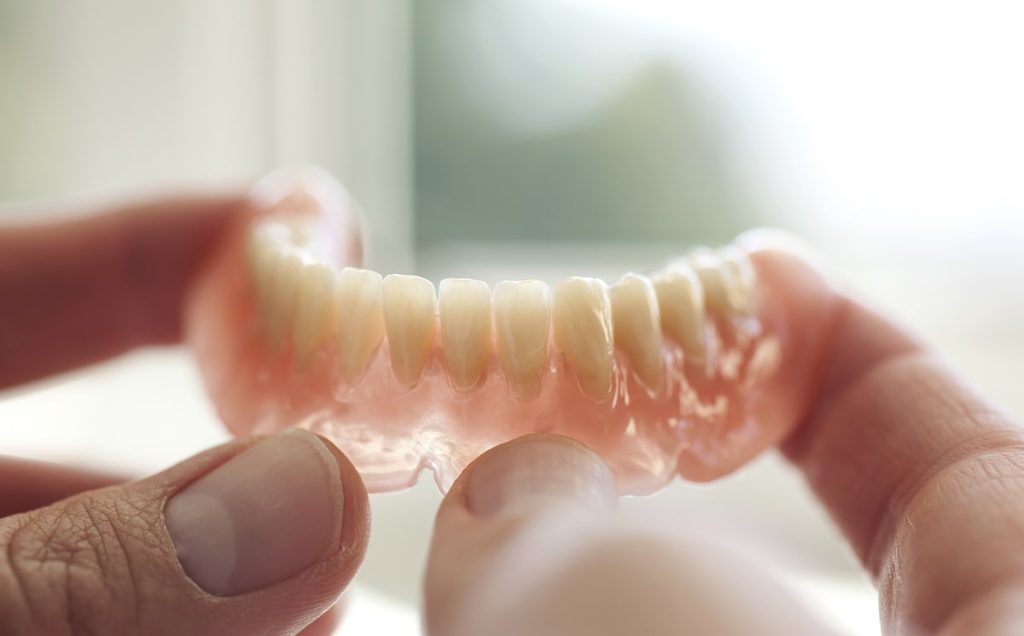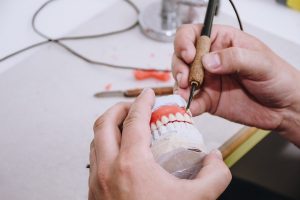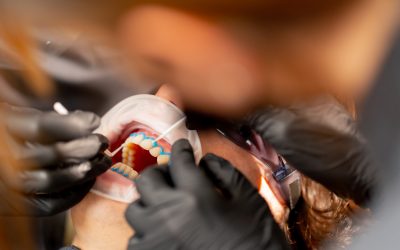July 19, 2024
Dr. Andres de Cardenas
All-on-4 dental implants, cosmetic bonding, Cosmetic Dental Care Services, cosmetic dentist Miami, Cosmetic Dentist Whitening, Cosmetic Dentistry, Daily Health Tips, dental care, Dental Care Tips, Dental Cleaning Appointment, Dental Implant Procedure, dental solutions, Dentist Appointment, family dental Care dentist, Family Dentist, FL, healthy teeth, Natural teeth whitening, Oral Cancer, Oral Care, professional denstists, Smile Makeover, Teeth Alignment, Teeth discoloration, Teeth Whitening, teeth whitening sensitive teeth, The Miami Cosmetic Dentist
Family Dental Care Miami | Miami Cosmetic Dentist > Blog > Blog - Category > The Average Lifespan Of Dentures: What No One Is Talking About
The Average Lifespan Of Dentures: What No One Is Talking About

A lot of people think that dentures are an automatic solution for missing teeth. They’re not! It’s crucial to realize that a number of factors, including your overall health and the state of your mouth, will affect how long your dentures will last.
By giving your dentures the correct care and according to some rules, there are several more ways to extend their lives. In this post, we’ll examine the average lifespan of dentures and discuss how proper maintenance can make them last longer.
Types Of Dentures
Dentures are a common dental appliance that helps people with missing teeth regain their smile and ability to chew properly. There are different types of dentures available, each designed to meet different needs and preferences.
Here are the main types of dentures:
Full dentures
Full dentures are designed for people who have lost all of their teeth. They are made of acrylic resin and fit snugly over the gums. Full dentures can be either conventional or immediate. After the teeth have been extracted and the gum tissue has recovered, which takes about 4-6 weeks, conventional dentures are created. On the other hand, instant dentures are prepared beforehand and can be fitted right away once the teeth are extracted. However, they may need adjustments as the gums heal and shrink.
Partial dentures
Partial dentures are used when some natural teeth are still present in the mouth. They are designed to fill in the gaps created by missing teeth and improve the appearance and functionality of the mouth. Partial dentures can be either removable or fixed. Removable partial dentures can be taken out of the mouth for cleaning and are held in place by clasps attached to adjacent teeth. Fixed partial dentures, also known as dental bridges, are permanently attached to adjacent teeth with dental crowns.
Implant-supported dentures
Implant-supported dentures are a type of full or partial denture that is anchored to dental implants. Dental implants are small, screw-like posts that are surgically inserted into the jawbone to replace missing tooth roots. Implant-supported dentures offer several advantages over conventional dentures, including improved stability and comfort, better chewing function, and preservation of jawbone density.
Longevity of Dental Dentures
While dentures are designed to be durable and long-lasting, they do not last forever. In this blog post, we will discuss the average lifespan of dentures and what factors can impact how long they last.
Yet, there are a lot of variables that can affect how long dentures last.
These elements consist of:
- Material Quality: The dentures’ lifespan may be impacted by the material quality utilized to make them. Dentures of higher quality created from sturdy materials may outlast those of lower quality made from less expensive materials.

- Proper Care: Proper care and maintenance of dentures can also impact their lifespan. Dentures should be cleaned regularly, and any damage or wear should be addressed promptly by a dental professional. Failing to properly care for dentures can lead to damage, wear, and deterioration that can shorten the average lifespan of dentures.
- Changes in Jaw Structure: Over time, changes in a person’s jaw structure can impact the fit and function of dentures. This can cause discomfort, difficulty chewing, and other issues that may require adjustment or replacement of the dentures.
- Age and Health: As a person ages, their overall health and immune system may weaken, which can impact the average lifespan of dentures. Additionally, certain health conditions and medications can impact the fit and function of dentures, which may require adjustment or replacement.
In addition to these factors, it’s important to note that dentures will inevitably wear down over time, simply from normal use. Regular dental check-ups can help detect any issues with dentures and ensure that they are functioning properly.
Average Lifespan Of Dentures Last About 10 Years.
Your need to replace your dentures sooner than 10 years may arise if they are broken or ill-fitting. There is no reason why your dentures shouldn’t endure for at least 10 years if you take proper care of them and adhere to the advice given by your dentist and/or dental hygienist.
How To Extend Life Expectancy Of Dentures
They are designed to fit comfortably in your mouth, helping you to eat, speak, and smile with confidence. However, just like natural teeth, dentures require proper care to extend their lifespan.
Here are some tips on how to extend the average lifespan of dentures:
- Clean Your Dentures Daily
Cleaning your dentures daily is essential to maintain their appearance and prevent bacteria from building up in your mouth. To clean your dentures, use a soft-bristled brush and a mild denture cleaner. Avoid using toothpaste, as it can be abrasive and damage the surface of your dentures. - Soak Your Dentures Overnight
Soaking your dentures overnight can help to remove any stains or bacteria that may have accumulated during the day. To do this, place your dentures in a glass of water with a denture cleaner or a mild solution of vinegar and water. Avoid using hot water, as it can warp your dentures. - Handle Your Dentures With Care
Dentures are fragile, so handle them with care to avoid damage. When cleaning or handling your dentures, make sure you do it over a towel or a soft surface to avoid breakage if you accidentally drop them. - Visit Your Dentist Regularly
Maintaining good oral health, including the health of your dentures, requires routine dental checkups. Your dentist will examine your dentures for damage and make any alterations required to guarantee a proper fit. - Avoid Hard or Sticky Foods
Hard or sticky foods can damage your dentures, so it’s best to avoid them. Instead, opt for softer foods that are easier to chew and won’t put excessive pressure on your dentures. - Store Your Dentures Properly
Keep your dentures in a tidy, dry location while not in use. Keeping them out in the open or subjecting them to severe temperatures might result in warping or damage.
Dentures can cost up to $2,000 per pair.
Depending on the material used and the complexity of your situation, the price of dentures might vary greatly. It’s crucial to understand that insurance does not cover dentures if you have missing teeth. This implies that you will be responsible for covering all out-of-pocket costs for both routine dental checkups and any replacement parts. There are options to help down the expense of having new teeth, which is fantastic news!
Care For Your Dentures Is Important
Your dental implants, however, should be cared for in the same way as your natural teeth. You should brush them every day and floss them once a week. The best way to do this is with an electric toothbrush or an oral irrigator (oral irrigators are more effective than regular ones). If you prefer using traditional methods instead of electrical ones, then try using a soft-bristled toothbrush instead of hard ones that can damage your implants over time.
You’ll also want to use mouthwash after eating or drinking anything acidic like soda or wine–this helps remove any leftover food particles stuck between your gums and teeth so they don’t decay over time! Rinse with water afterwards so there’s no chance that bacteria could build up around the base of each individual implant where it connects with surrounding tissue structures.
Impact of Wearing Ill-Fitting Dentures
Let us explore the impact of wearing ill-fitted dentures on the mouth and overall health.
Pain and Discomfort
One of the most common issues that arise from ill-fitted dentures is pain and discomfort. When dentures are not fitted properly, they can rub against the gums, causing sore spots and painful ulcers. This discomfort can make it difficult to eat, speak, and even smile confidently. Furthermore, ill-fitted dentures can cause the jaw to become misaligned, leading to headaches, earaches, and neck pain.
Difficulty Eating
Wearing ill-fitted dentures can also make it challenging to eat comfortably. If dentures are too loose, they may slip or move around while eating, causing discomfort and making it difficult to chew properly. This can result in a limited diet, which can lead to nutritional deficiencies and weight loss.
Difficulty Speaking
Another impact of wearing ill-fitted dentures is difficulty speaking. When dentures do not fit properly, they can cause speech impediments, such as lisping or slurring. This can be particularly embarrassing in social situations and may affect an individual’s confidence and self-esteem.
Oral Health Issues
Wearing ill-fitted dentures can also lead to a variety of oral health issues. If dentures are too loose, food particles and bacteria can get trapped underneath them, leading to bad breath, gum disease, and even tooth decay. Additionally, ill-fitted dentures can cause bone loss in the jaw, which can affect the fit of the dentures and require additional adjustments.
Psychological Impact
The impact of ill-fitted dentures goes beyond physical discomfort and oral health issues. The psychological impact of wearing dentures that do not fit properly can be significant. Individuals may feel self-conscious, embarrassed, and avoid social situations altogether. This can lead to feelings of isolation and depression, affecting their overall well-being.
Dentures are Not An Automatic Solution For Missing Teeth.
Dentures are not a panacea for missing teeth. They can be expensive, uncomfortable, and even harmful to your health. If you’re thinking about getting dentures, it’s important to understand what they are and how they work before making any decisions about your smile.
Palatal expansion is an alternative treatment for missing teeth that have been shown in studies to be effective at increasing the average lifespan of dentures by up to seven years.* In this procedure we use small metal plates placed around the palate (the soft tissue above your gums) which expand over time as muscles pull them apart from each other.* This process helps create space between bones so that natural teeth can grow back into place.* If left untreated or if only one side expands evenly without pressure being applied equally across both sides of the jawbone then there may still be some space between newly formed roots and existing dentures which could lead them becoming loose over time causing discomfort when eating foods with high sugar content such as candy bars etc.
Dentures are not the ideal option if you’re trying to replace your missing teeth. They cost a lot and need to be cared for the same as any other tooth in your mouth. Consider obtaining dental implants if you want something more durable than dentures but less intrusive than implants or bridges. To help our patients make educated decisions regarding their healthcare needs when it’s time for their next appointment at our office, we hope this article has provided some insight into what living with dentures is actually like.
Get In Touch With Us
Recent Posts
- Bright Smiles, Brighter Futures: Why Cosmetic Dentist Whitening Is Worth It
- Safeguard Your Smile: Family Dental Care Dentist Debunks DIY Dentistry Tips!
- Dental Implant FAQs: What to Know About the Recovery Process
- The Health Benefits Of Cosmetic Dental Care Services: Beyond Vanity
- The Ultimate Cosmetic Dental Checklist For Miami, FL Residents
Related articles
July 5, 2024
Dr. Andres de Cardenas
All-on-4 dental implants, cosmetic bonding, Cosmetic Dental Care Services, cosmetic dentist Miami, Cosmetic Dentistry, Daily Health Tips, dental care, Dental Care Tips, Dental Cleaning Appointment, Dental Implant Procedure, dental implant recovery, dental implants, dental solutions, Dentist Appointment, family dental Care dentist, Family Dentist, FL, healthy teeth, Oral Cancer, Oral Care, professional denstists, Smile Makeover, Teeth Alignment, Teeth discoloration, Teeth Whitening, The Miami Cosmetic Dentist
Safeguard Your Smile: Family Dental Care Dentist Debunks DIY Dentistry Tips!
June 21, 2024
Dr. Andres de Cardenas
All-on-4 dental implants, cosmetic bonding, Cosmetic Dental Care Services, cosmetic dentist Miami, Cosmetic Dentistry, Daily Health Tips, dental care, Dental Care Tips, Dental Cleaning Appointment, Dental Implant Procedure, dental implant recovery, dental implants, dental solutions, Dentist Appointment, Family Dentist, FL, healthy teeth, Oral Cancer, Oral Care, professional denstists, Smile Makeover, Teeth Alignment, Teeth discoloration, Teeth Whitening, The Miami Cosmetic Dentist


